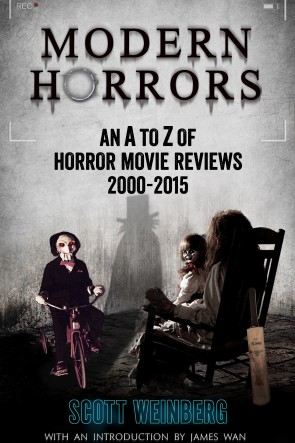Review: HUSH (2016){0}
The silence of the Flans.
“A deaf writer who retreated into the woods to live a solitary life must fight for her life in silence when a masked killer appears in her window,” reads the synopsis for Hush, the straight-to-Netflix new film from Mike Flanagan, the filmmaker who impressed with Absentia and found success with Oculus. The premise of a deaf person being menaced by a killer sounds like one of those ‘Why has nobody thought of this before?’ ideas the Blumhouse horror factory seems to put out on an almost weekly basis – although it’s worth remembering that for every Unfriended, Jessabelle or Visions Jason Blum and his prolific partners come up with, there’s a Ouija, The Visit or Martyrs remake adding to the morass of rubbish that tends to pollute the horror genre. Sadly, Mike Flanagan’s Hush falls into the latter category, squandering its solid premise as though neither he nor co-writer/star Kate Siegel spent any more time on the script than Blumhouse’s marketing department did on the poster’s lazy non sequitur of a tagline: ‘Silence is killer.’ They might as well have gone with ‘When you’re deaf, no one can hear you scream.’
Leaving aside the issue of why a deaf-mute would want to isolate themselves still further by moving to a remote house in the woods – other than the inherent cheapness of filming in such a place – Hush presents a number of problems. Firstly, “a deaf writer” (okay, a female deaf writer) are pretty much the only character traits of the protagonist/victim played by Siegel, who is surely one of the few screenwriter-actresses in history to write herself a thinner character than studios typically offer up. The killer (John Gallagher, Jr.) is equally sketched-in; simply another psychopathic rando with a You’re Next/Darryl Dixon crossbow and a You’re Next/The Purge white face mask. Both exist simply to play killer and victim in yet another house-in-the-woods game of cat-and-mouse, with neither coming up with clever ways to outwit or overcome the other – these days, we expect a little resourcefulness from our heroine/victims and our serial killers. Instead, the ‘game’ simply plays out – with the exception of one outrageous bait-and-switch “fake kill” scene, the narrative equivalent of a dream sequence the audience believes is real – as Hush crawls to an entirely predictable ending, with little invention and absolutely nothing earned. People just are; things just happen – a far cry from Flanagan’s early films, with the slowly building dread of Absentia or the smart doublethink of Oculus.
Perhaps most shameful of all is that Flanagan squanders the dramatic opportunities of a victim who cannot hear her killer as he comes for her. Suffice it to say that the next time someone makes a film with a deaf protagonist, there is a little more invention in the sound department, so the audience can really imagine what it might be like to not to be able to hear whatever things happen to be going bump in the night. Deaf doesn’t have to be so dumb.
★★
Hush is streaming on Netflix now.








